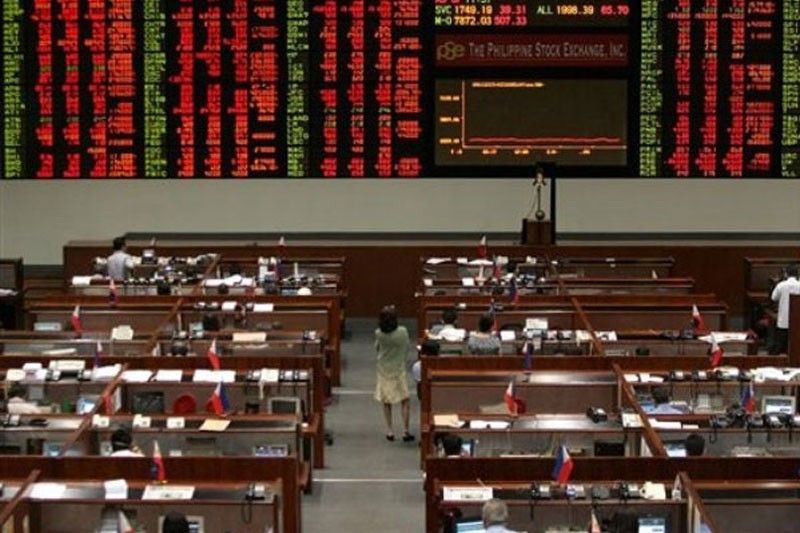Market to move sideways

MANILA, Philippines — The stock market remains in consolidation mode and may still continue to move sideways after the US Federal Reserve hinted that interest rates may continue to move up.
Traders said this makes investors less interested in parking their funds in stocks in favor of other higher-yielding instruments.
Astro del Castillo, managing director at First Grade Finance Inc., said the hawkish stance of the Fed has influenced market behavior.
Several other concerns, including geopolitical uncertainties as well as rising inflation, have also added to the jitters, he said.
Thus, last week, the Philippine Stock Exchange index fell by 0.32 percent week-on-week for the second straight week to 7,647.51.
Jonathan Ravelas, market strategistat BDO, said investors continued to stay on the sidelines due to geopolitical uncertainties and rising oil prices. “These have put consumers into a worried state,” he said.
Moving forward, he said last week’s close at 7,647.51 could trigger some bargain hunting near the 7,500 level, but risk still lies at the break below the 7,500 levels.
“Immediate support and resistance is seen at 7,500 and 8,000 levels, respectively,” he said.
The decision of monetary authorities to cut banks reserve requirement ratio was also seen to affect the peso, which in turn also made market investors jittery.
Last week, the Bangko Sentral ng Pilipinas (BSP) lowered banks reserve requirement ratio by one percent to 18 percent effective June 1.
The move is part of the central banks broad medium-term financial market reform agenda. This is a continuation of its gradual and phased reduction in reserve requirement ratio that started in March.
The move is seen to unleash up to P90 billion in additional liquidity to the system.
But Ravelas said the recent rise in oil prices, the continued outflow of foreign funds, and the recent one percent reduction in reserve requirement ratio by the BSP are not helping the currency.
For its part, the Department of Finance said rising inflation should not be attributed to the increase in taxes brought about by TRAIN. It said spike in rice prices because of alleged lack of supply, a weak peso, rising oil prices abroad, better tax compliance of local cigarettes, and growing consumer demand accounted for the bulk of the 4.5 percent inflation in April.
Chris Mangun of Eagle Equities, meanwhile, sees the market still trading “within this congestion area between 7,500 and 7,830.
“This is because the index refuses to break support at 7,500 and the fact that investors are not trading the blue chips. We are still convinced that any rally in this market will be led by the property sector. The weak peso has also been a big concern for investors,” Mangun said.
- Latest
- Trending



























